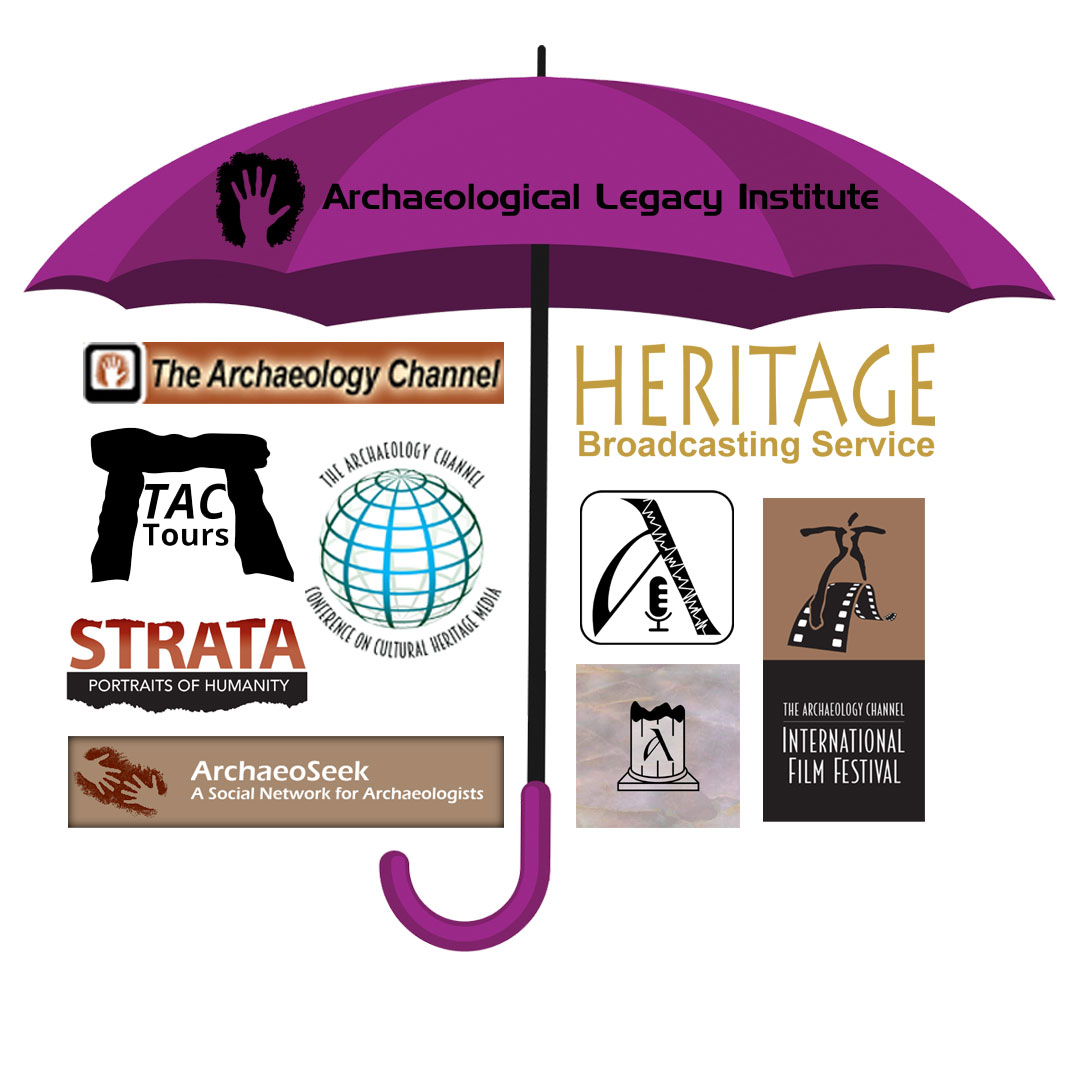The Archaeology Channel (TAC) is a streaming media website brought to you by Archaeological Legacy Institute (ALI). ALI is a nonprofit organization devoted to nurturing and bringing attention to the human cultural heritage, by using media in the most efficient and effective ways possible.
Why We Were Founded
ALI is an independent, nonprofit, tax-exempt (501[c][3]), research and education corporation registered in Oregon in 1999. Recognizing that the archaeological record is the legacy of all human beings and dedicated to bringing the benefits of archaeology to a wider constituency, ALI was founded to address a number of critical issues now facing archaeology and its potential beneficiaries:
- Damage to archaeological sites is taking place at an alarming rate. Support for preservation programs could be enhanced by using modern communications technology to inform the public that their archaeological legacy is seriously endangered.
- Despite many millions of public and private dollars spent annually, the poor availability of project reports (the "gray literature"), written mainly to satisfy minimum government requirements, inhibits both research progress and popular support for archaeology.
- Too little is written for an information-hungry public by professionals, who receive few incentives for such activity.
- Interested and normally honest lay people, far more numerous than professional archaeologists, often have extensive knowledge of archaeological sites and artifacts that they will not share with professionals for fear of being accused of misdeeds.
- Media news items, seldom prepared by archaeologists themselves (who are busy doing research, teaching, or meeting clients' needs), are frequently shallow, inaccurate, and incomplete.
- Despite decades of objection, indigenous peoples, whose past is often the subject of archaeological study, still have too little voice in conduct of research, share too few of its benefits, and consequently often do not support studies that could improve knowledge and appreciation for their cultural heritage.
- School curricula that could employ archaeological knowledge to help inform future adults about their place in history and relations with other peoples typically offer only cursory coverage of archaeology.
- Archaeological research itself, particularly fieldwork, is still largely conducted in habitual and cost-inefficient ways that would be greatly improved by the focused application of modern technologies.
Our Original Mission Statement
The mission of ALI is to develop ways to make archaeology more effective both in gathering important information about past human lifeways and in delivering that information to the public and the profession. A fundamental postulate is that archaeology has important messages to deliver accurately and completely to people worldwide about our origins and development as a species and that among these messages are those about mistakes we have made in the past and must not make in the future. In essence, ALI is devoted to archaeological research and its contributions to science and to humanity. In the furtherance of this mission, ALI, its associates, and its employees adhere to the Principles of Archaeological Ethics promulgated by the Society for American Archaeology.
What We Do
To pursue our mission and realize our goals, ALI is involved with a number of existing and planned initiatives and activities.
We Utilize media and social media programming to get our messages across by means of
- This website, The Archaeology Channel (TAC; films, news, commentary, interactive programs, etc.). Explore TAC to learn about the full range of our activities.
- Our subscription video-on-demand service, Heritage Broadcasting Service.
- Our weekly podcast, the Audio News from Archaeologica, available on dozens of podcasting sites as well as here on The Archaeology Channel.
- Our archaeology news website, Archaeologica.
- Our social networking site, Archaeoseek.
- Social media sites and other online and cable TV venues.
- Special film screening events; partnering with film and program producers.
- Producing video and audio programs of our own.
- Conducting our annual international film competition, The Archaeology Channel International Film Festival.
We promote archaeology in education through the development and implementation of school curricula, teacher training, exhibits and programs for the public, an annual conference on cultural heritage film, and training and degree programs for archaeologists and archaeological technicians.
We partner with indigenous peoples through media programming, research projects, scholarship awards, assistance with cultural resource programs, and museum exhibits and programs.
We envision publications, including a peer-reviewed journal; conversion of contract reports into monographs in print, on CD, and on the Web; a news service for newspapers, magazines, radio and TV stations; and the promotion of literature intended for a lay audience.
